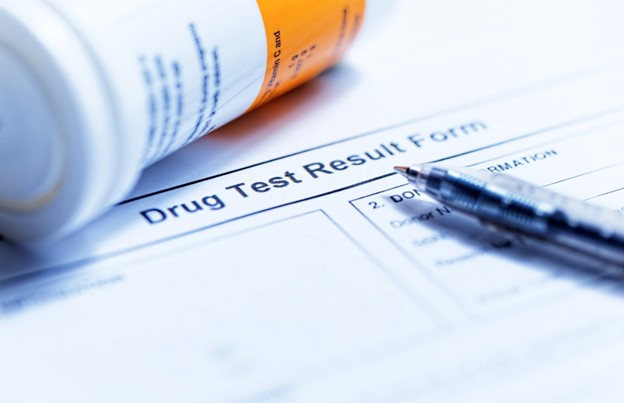Drug testing has become a common practice in many industries. This is with employers seeking to create a safer and more productive work environment. However, one question that often arises is – how much is a drug test? Is it worth the investment for your business?
In this article, we will explore the various factors that contribute to the cost of drug testing. This will help you understand whether it is a worthwhile expense for your organization. We will also delve into the benefits and potential drawbacks of implementing drug testing in the workplace.
How Much Is a Drug Test?
Drug testing in the workplace can involve a variety of methods, each with its own associated costs. Some of the most common drug testing methods include urine tests, hair follicle tests, saliva tests, and blood tests. The cost of these tests can vary based on factors such as the following:
– type of test being used
– number of substances being tested for
– frequency of testing
Factors Affecting the Cost of Drug Testing
As mentioned earlier, there are several factors that contribute to the overall cost of drug testing. These include:
Type of Test
As mentioned earlier, different types of drug tests come with varying costs. For instance, a urine test is generally less expensive than a hair follicle test. This is due to factors such as the complexity and time required for analysis.
Additionally, urine tests are used for initial screenings. This is while hair follicle tests are often utilized for more comprehensive and long-term detection.
Number of Substances Being Tested
Employers may choose to conduct drug tests to detect the presence of various substances in their employees’ systems. These substances can range from marijuana, cocaine, and opioids to amphetamines.
The decision to include multiple substances in the test is often influenced by factors such as the following:
– industry regulations
– safety concerns
– specific organization needs
It’s important to note that the more substances included in the test, the higher the cost associated with conducting it. This is due to the complexity involved in analyzing and interpreting results accurately.
Frequency of Testing
Some employers may choose to conduct one-time or occasional drug testing. This is to ensure a safe and drug-free workplace. At the same time, others may opt for regular or random testing as part of their ongoing commitment to employee well-being.
Naturally, the frequency of testing can impact the overall cost. More frequent testing would require additional resources and administrative efforts.
Testing Location
The cost of drug testing can vary depending on several factors, including where the tests are conducted. In-house testing may be more affordable compared to sending samples to an external laboratory. This is conducted within the organization itself.
This is because in-house testing rehab eliminates the need for additional transportation costs. It reduces the turnaround time for obtaining test results. Additionally, in-house testing allows for greater control and confidentiality of the testing process. This ensures accurate and reliable results.
Is Drug Testing Worth the Cost for Your Business?
Now, we have a better understanding of the factors affecting the cost of drug testing. Let’s explore whether it is worth the investment for your business. Here are some potential benefits of implementing drug testing in the workplace:
Promotes a Safe Work Environment
Implementing drug testing protocols in the workplace can play a crucial role in identifying employees who may be using drugs. By doing so, organizations can reduce the potential risks associated with accidents and injuries.
This fosters a safer and more secure work environment for all employees. This proactive approach not only promotes employee well-being. It also contributes to the overall productivity and success of the business.
Increases Productivity
Employees who use drugs may experience decreased productivity. This leads to a negative impact on the organization. This can manifest in missed deadlines, reduced quality of work, and increased absenteeism.
Organizations can improve productivity. They can create a safer and healthier work environment for all employees. This is by implementing regular drug testing programs and addressing any issues identified.
Mitigates Legal Risks
In some industries, such as transportation or healthcare, drug testing may be required by law to ensure safety and compliance. Implementing drug testing can help protect your business from potential legal ramifications.
Drawbacks of Drug Testing
However, it is important to also consider the potential drawbacks of drug testing, such as:
Cost
The implementation of drug testing can pose a significant financial burden for businesses. This expense includes not only the cost of the actual home drug test kit and equipment. It also includes the resources required for training staff, conducting the tests, and managing the entire process.
There may be more expenses associated with ensuring compliance with legal and regulatory requirements. There are also potential costs related to employee morale and privacy concerns.
Privacy Concerns
Some employees may view drug testing as an invasion of privacy and may feel uncomfortable with the process. This discomfort may stem from concerns about their personal autonomy. It may also be from the potential for false positives or misinterpretation of the results.
Some employees may question the effectiveness of drug testing. This is to ensure a safe and productive work environment. This is also for alternative approaches such as education and support programs.
False Positives
Drug tests, while commonly used, may not always provide a completely accurate result. In some cases, false positives can occur, leading to potentially significant implications for employees.
It is crucial to consider the potential consequences and ensure that proper measures are in place to address any inaccuracies or false readings that may arise from these tests.
All About Investing in Drug Testing
In conclusion to how much is a drug test, the cost can vary depending on various factors and should be carefully considered before implementing it in the workplace. While there are potential benefits to implementing drug testing, it is important to also consider the potential drawbacks and weigh them against your organization’s specific needs and budget.
Ultimately, the decision to conduct drug testing should be carefully evaluated to ensure it aligns with your organization’s values and goals. So, before making any decisions, it is crucial to thoroughly assess the potential benefits and drawbacks of drug testing for your business.
If you want to explore the best topics, we’ve got you covered. Check out some of our other blogs today!
Read Also
- Mastery Forge Webinar Platform – Choose Your WebinarWe live in a time when knowledge is literally at your fingertips. You no longer have to go on long courses, wait for free places or adapt to a rigid schedule of classes. All you need is the Internet, a little willingness and you have access to training courses conducted by experts from all over… Read more: Mastery Forge Webinar Platform – Choose Your Webinar
- Beyond the Blueprint: Why Integrated Electronics Manufacturing Beats Fragmented SourcingBringing an electronic product to market is a complex orchestration of design, engineering, manufacturing, and logistics. The days of siloed operations, where a company would design a product and then simply hand off the blueprints to a contract manufacturer, are largely disappearing. In their place, a more integrated and efficient model has emerged: end-to-end electronics… Read more: Beyond the Blueprint: Why Integrated Electronics Manufacturing Beats Fragmented Sourcing
- Hardened shelter solutions reshape how military operations stay safe and functional in the fieldDifficult terrain, unpredictable threats and long deployments have driven modern militaries to reconsider how they create safe, reliable spaces in the field. Rigid wall shelters and container-based structures are becoming the quiet backbone of operations, offering durability, mobility and real comfort for the troops and support teams. When most people think of military bases, they… Read more: Hardened shelter solutions reshape how military operations stay safe and functional in the field
- The Function of a CRO for Clinical Trials: Structure, Responsibilities, and Operational ImpactClinical trials rely on organized systems that ensure scientific validity, participant protection, and regulatory compliance. As protocols become more intricate and studies expand across multiple regions, many sponsors collaborate with specialized partners to manage key operational and methodological tasks. A CRO for clinical trials provides this structured support, coordinating the activities required to move a study from… Read more: The Function of a CRO for Clinical Trials: Structure, Responsibilities, and Operational Impact
- Innovative Strategies for Marketing Neuropathy TreatmentsLiving with neuropathy can be difficult, both physically and mentally. As a healthcare professional, you see how much it affects your patients and how important it is to find treatments that truly help. But with new medical updates and a fast-changing digital world, marketing neuropathy treatments can feel overwhelming. This is where fresh, practical strategies… Read more: Innovative Strategies for Marketing Neuropathy Treatments
- The Art of Thumbnails: Smart Design Hacks for More Channel ViewsHave you ever wondered why some videos get thousands of clicks while others are ignored, even if the content is good? The answer often lies in the thumbnail. A thumbnail is the first impression a viewer gets before deciding to watch. It works like a book cover that can pull people in or push them… Read more: The Art of Thumbnails: Smart Design Hacks for More Channel Views







